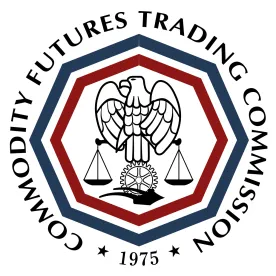CFTC and SEC Approve Final Rule on Security Futures Margin and Request for Comment on Portfolio Margining
On October 22, the Commodity Futures Trading Commission and the Securities and Exchange Commission, at their first-ever joint open meeting, approved (1) a joint final rule to lower the margin requirement for an unhedged security futures position from 20 percent to 15 percent, which was approved over the dissents of Commissioners Lee and Crenshaw of the SEC; and (2) the issuance of a joint request for comment on the portfolio margining of uncleared swaps and non-cleared security-based swaps.
The CFTC press release and access to the Federal Register releases are available here. The SEC press release is available here.
CFTC Staff Issues Advisory on Virtual Currency for Futures Commission Merchants
On October 21, the Division of Swap Dealer and Intermediary Oversight (DSIO) of the Commodity Futures Trading Commission issued an advisory to futures commission merchants (FCMs) regarding the holding of virtual currency in segregated accounts. The advisory, Letter No. 20-34, provides guidance to FCMs on how to hold and report certain deposited virtual currency from customers in connection with physically delivered futures contracts or swaps and how to maintain appropriate risk management programs concerning the acceptance of virtual currencies as customer funds.
Consistent with the existing requirements for customer funds held by FCMs, DSIO advised FCMs that, among other things:
-
Virtual currency held as customer funds by an FCM must be deposited only with a bank, trust company, or another FCM, or with a designated clearing organization (DCO) that clears virtual currency futures, options on futures, or cleared swap contracts (Depository), which must provide an acknowledgment letter required under CFTC Rule 1.20(h).
-
The virtual currency (e.g., bitcoin or ether) deposited must relate solely to customer trading of futures (or options on such futures) or cleared swaps contracts that provide for the physical delivery of that virtual currency. The virtual currency accepted must be intended to margin, guarantee, or secure such customer trading, and the amount must reasonably relate to the customer’s level of trading in those contracts during each calendar quarter. Further, the relevant DCO must have formally determined that the virtual currency is an acceptable form of collateral for those contracts.
-
Virtual currency must be available for withdrawal from a Depository upon demand and should be completed within a time that is technologically and operationally possible, but should not exceed one day, unless the procedures of the Depository specify additional time as part of its controls related to transfers of virtual currency.
-
In computing its daily and month-end segregation requirement, an FCM may not offset a debit or deficit in a futures customer’s or cleared swaps customer’s account by the value of any virtual currency held in the respective customer’s account. Therefore, an FCM may be required to deposit its own funds into segregation to cover any debit or deficit.
-
An FCM may not deposit its own virtual currencies in futures customer’s or cleared swaps customer’s segregated accounts for any reason, including in order to meet targeted or residual interest requirements.
Further, DSIO advised that, before accepting any virtual currency into a customer’s segregated account, an FCM should provide 45 days prior written notice to all futures and cleared swaps customers that the FCM will begin accepting virtual currency as of a specified date. The FCM should thereafter include the total amount of customer activity in virtual currency being supported by the deposit of actual virtual currency by customer origin as part of its disclosures required under CFTC Rule 1.55
The press release and access to CTFC Staff Letter 20-34 are available here.





 />i
/>i
